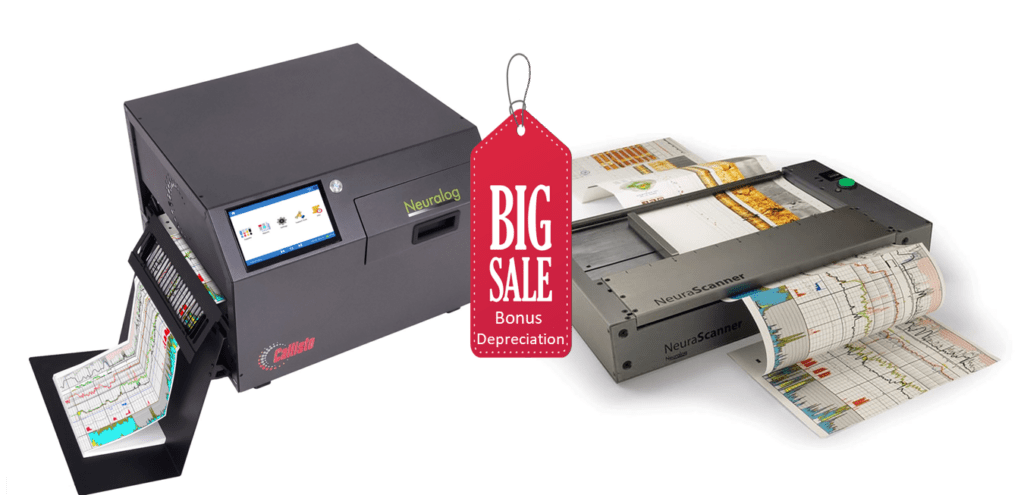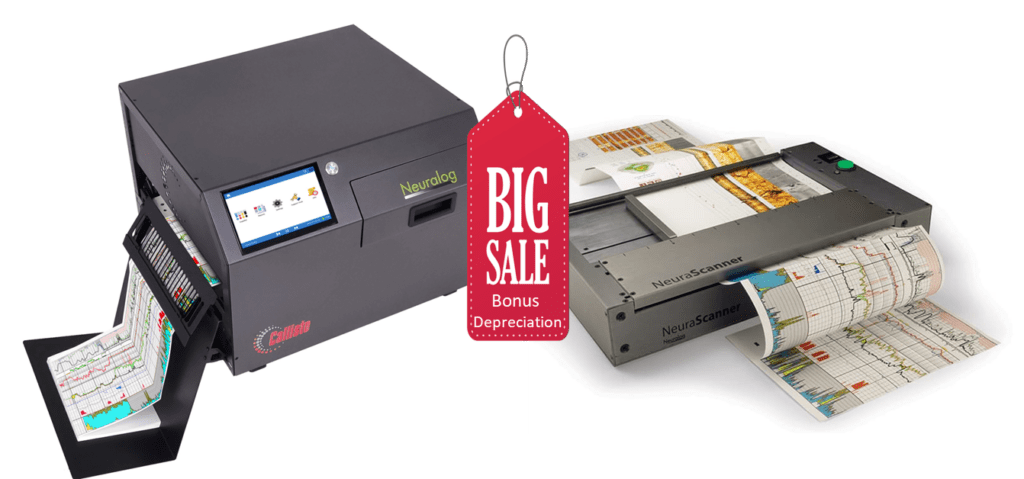In the ever-evolving landscape of taxation, businesses continually seek ways to optimize their financial strategies. One such avenue that has gained prominence is bonus depreciation, a tax incentive designed to stimulate economic growth by encouraging businesses to invest in capital assets. As we navigate through the last month of 2023, understanding the benefits of bonus depreciation becomes crucial for businesses aiming to enhance their bottom line and stay competitive in the market.

on your Equipment Purchase!
“Bonus Depreciation…It’s like buying your equipment on sale.”
– TAX ACCOUNTANT
What is Bonus Depreciation?
Tax Cuts and Jobs Act (TCJA)
The Tax Cuts and Jobs Act, passed in 2017, introduced significant changes to bonus depreciation. Under TCJA, businesses could deduct 100% of the cost of qualified property in the year it was placed in service. This provision applied to both new and used property.
Increased Depreciation Percentage
The TCJA increased the bonus depreciation percentage from 50% to 100%, providing businesses with the opportunity to accelerate the recovery of the cost of certain qualified property.
Qualified Property Definition
To be eligible for bonus depreciation, the property must meet the criteria for “qualified property.” This typically includes tangible property with a recovery period of 20 years or less and certain specified improvements to nonresidential real property. Examples of qualified property include office equipment such as document printers and scanners. The Neuralog Callisto Well Log Printer or Neuralog NeuraScanner continuous document scanner both qualify as equipment that may be eligible for this bonus depreciation.

Used Property Eligibility
The TCJA expanded bonus depreciation to include both new and used property, making it a more attractive option for businesses looking to take advantage of immediate tax benefits when acquiring used assets. Neuralog may be able to offer used demo equipment at a discounted price.
Phase-Out Schedule
The TCJA also included a phase-out schedule for bonus depreciation. The 100% bonus depreciation was scheduled to decrease by 20% each year starting in 2023 until it phased out completely in 2027. This means that for a $10,000 piece of equipment, $8000 can be immediately depreciated (and thus expensed) through December 31, 2023. However starting January 1, 2024, that amount immediately changes to $6000. One accountant said, “It’s like buying your equipment on sale.”
| Year | TCJA Schedule | Amount depreciable on $10000 equipment purchase |
| 2022 | 100% Depreciation | $10,000 |
| 2023 | 80% Depreciation | $8000 |
| 2024 | 60% Depreciation | $6000 |
| 2025 | 40% Depreciation | $4000 |
| 2026 | 20% Depreciation | $2000 |
| 2027 | 0% Depreciation | $0 |

Section 179 vs. Bonus Depreciation: Businesses should consider the interaction between Section 179 expensing and bonus depreciation. Section 179 allows businesses to deduct the cost of certain property as an expense, subject to specific limits. Detailed rules for Section 179 and other types of depreciation can be found on the IRS web site..

General Benefits of Bonus Depreciation
Accelerating Depreciation
Bonus depreciation allows businesses to accelerate the depreciation of certain qualifying assets, enabling them to deduct a significant portion of the asset’s cost in the year of purchase. This immediate tax benefit contrasts with traditional depreciation methods that spread the deduction over several years. By front-loading the depreciation, businesses can free up valuable capital that can be reinvested into operations, expansion, or other strategic initiatives.
Boosting Cash Flow
One of the primary advantages of bonus depreciation is its positive impact on cash flow. Instead of waiting for the traditional depreciation schedule to unfold over several years, businesses can claim a substantial deduction upfront. This injection of cash can be instrumental for companies looking to fund new projects, hire additional staff, or address immediate financial needs. The ability to access these tax savings promptly provides a competitive edge in a dynamic business environment.
Encouraging Capital Investment
Depreciation serves as a powerful incentive for businesses to invest in capital assets. This includes machinery, equipment, and other qualified property. The allure of a larger upfront tax deduction can sway investment decisions, prompting companies to make capital expenditures that they might otherwise delay. This, in turn, has a ripple effect on the economy, driving increased demand for goods and services related to capital asset production and utilization.
Stimulating Economic Growth
Governments implement bonus depreciation as a proactive measure to stimulate economic growth. By encouraging businesses to invest in capital assets, authorities aim to boost productivity, create jobs, and foster innovation. As businesses take advantage of bonus depreciation, they contribute to the overall economic vitality, creating a win-win scenario for both the private sector and the government.
Favorable Treatment for Qualifying Assets
Not all assets qualify for this type of depreciation, but for those that do, the benefits are substantial. Qualifying assets typically include machinery, equipment, computers, and certain improvements to buildings. The ability to accelerate the depreciation of these assets provides businesses with a valuable tool to optimize their tax liabilities. As technology continues to advance, the inclusion of computers and technology-related assets in bonus depreciation is particularly relevant, incentivizing businesses to stay on the cutting edge of innovation.
Tax Planning Flexibility
Bonus depreciation offers businesses greater flexibility in tax planning. Companies can strategically time their capital investments to align with their financial goals and the overall economic climate. This flexibility allows businesses to adapt their tax strategies based on their specific needs, whether it be to offset a particularly profitable year or to stimulate growth during a downturn.
Conclusion
In the complex world of taxation, bonus depreciation stands out as a valuable tool for businesses aiming to enhance their financial position. The ability to accelerate depreciation, boost cash flow, encourage capital investment, and stimulate economic growth make bonus depreciation a compelling option for businesses in 2023 and beyond. As companies navigate the challenges and opportunities of the modern business landscape, understanding and leveraging the benefits of bonus depreciation can be a strategic advantage that positively impacts the bottom line and sets the stage for sustainable growth.
Disclaimer: This information is general in scope and educational in nature. It is not intended as legal or tax advice. If you require legal or tax advice, contact an attorney.
